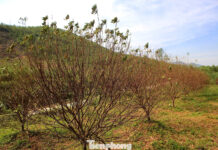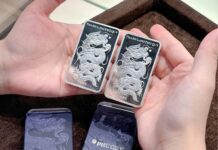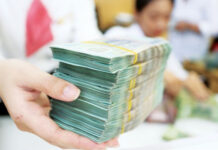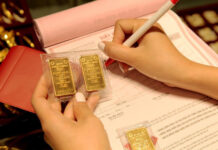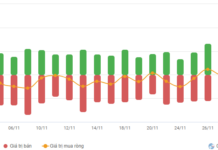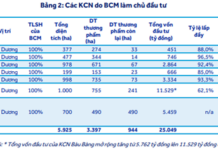Recently, the trend of adding fermented shrimp paste and scallions to bubble tea has surfaced on social media. Some TikTokers have even purchased the drink and recorded videos of themselves reviewing it, garnering hundreds of thousands of views.
Associate Professor Nguyen Duy Thinh, a former lecturer at the Institute of Food Technology, Hanoi University of Science and Technology, has criticized this trend as unscientific and detrimental to health. Bubble tea is inherently sweet, and tapioca pearls or other toppings are usually added to balance out the sweetness. By adding scallions and fermented shrimp paste to the tea, not only is the flavor compromised, but these contrasting ingredients can lead to digestive problems and diarrhea.
“Combining bubble tea with fermented shrimp paste is an act of seeking attention and curiosity from viewers ,” said Mr. Thinh.
Even when scallions, fried fish, or fermented shrimp paste are cooked, they should not be combined with bubble tea, as these ingredients have strong odors that can overpower the taste of the drink and even be nauseating to consumers. Intentional consumption of this combination can lead to food poisoning.
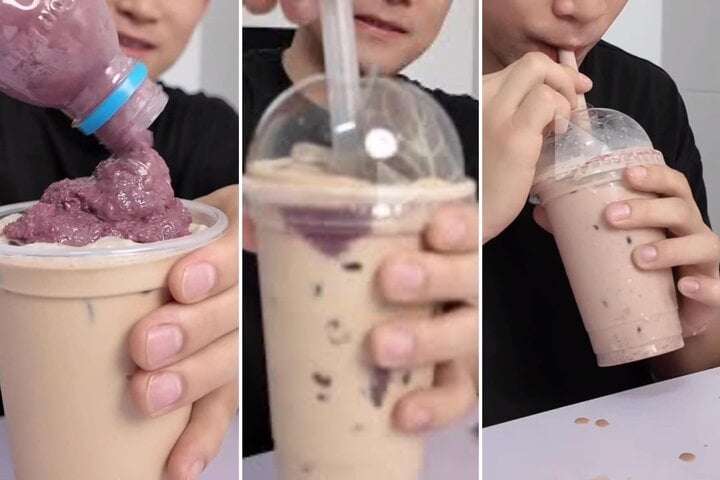
Drinking Bubble Tea Mixed with Fermented Shrimp Paste: A Trend or Self-Harm?
Even traditional bubble tea should be consumed sparingly. It is high in calories, leading to rapid weight gain and obesity. Commercially available bubble tea consists primarily of creamer blended with tea powder and additives. Consuming this drink introduces significant amounts of saturated fats into the body, resulting in weight gain.
Many bubble tea shops substitute artificial coloring for natural tea powder due to its similar taste, which is often undetectable to consumers. However, the actual ingredient is a synthetic chemical.
Excessive consumption of bubble tea, or tea with excessive additives, can strain the liver and kidneys, impairing their normal function. The high sugar content in these drinks also overworks the liver and kidneys, affecting their performance.
Many consumers opt to make their own bubble tea using their preferred tea and milk. According to Professor Nguyen Duy Thinh, this is not advisable as the quality of ingredients and components used in homemade bubble tea cannot be guaranteed. Authorities have uncovered numerous cases of vendors selling raw materials of dubious origin.
From a scientific perspective, combining tea and milk is also discouraged. The casein proteins in milk diminish the beneficial compounds found in tea, which are responsible for protecting the body against cardiovascular diseases. Conversely, tea accelerates the body’s elimination of calcium from milk before it can be adequately absorbed.
“If you enjoy bubble tea, limit your intake to 1-2 cups per week, opt for the smaller size, choose low-sugar options, and purchase from reputable brands,” ô said Mr. Thinh.



